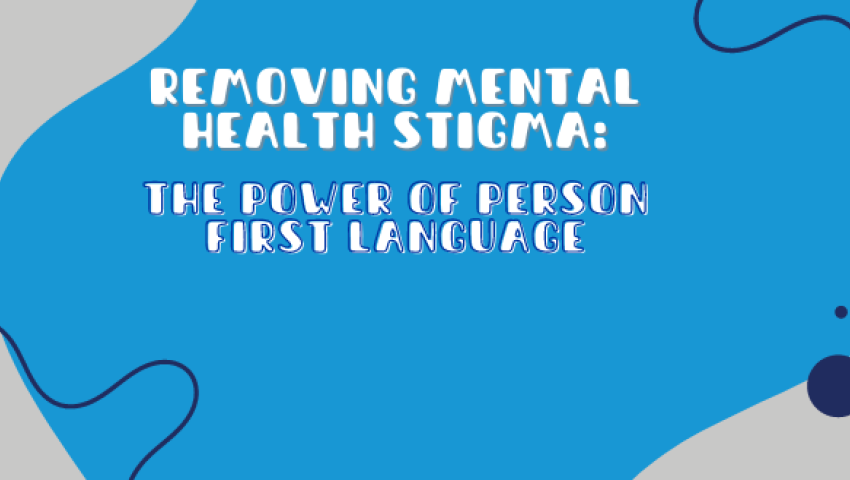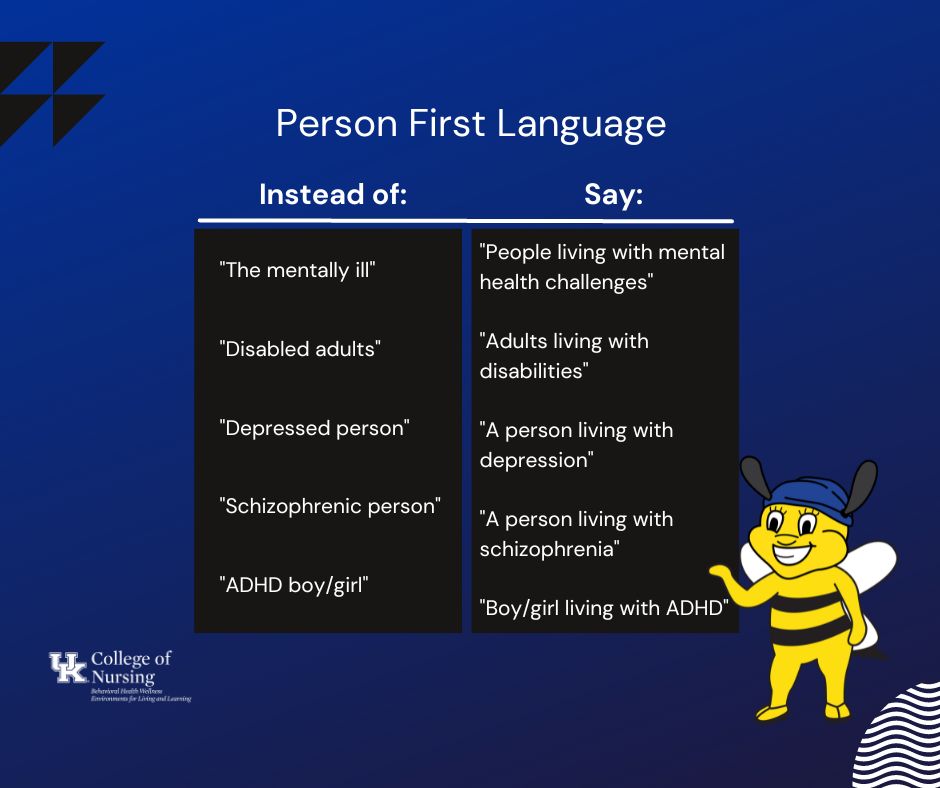Language can reinforce stigma OR emphasize individuality, equality, and respect. Consider using PFL in your conversations! You can be an agent of change just by staying mindful.
The Behavioral Health Wellness Environments for Living and Learning (BH WELL) research team exists to promote behavioral health and wellness among individuals facing behavioral health challenges.

